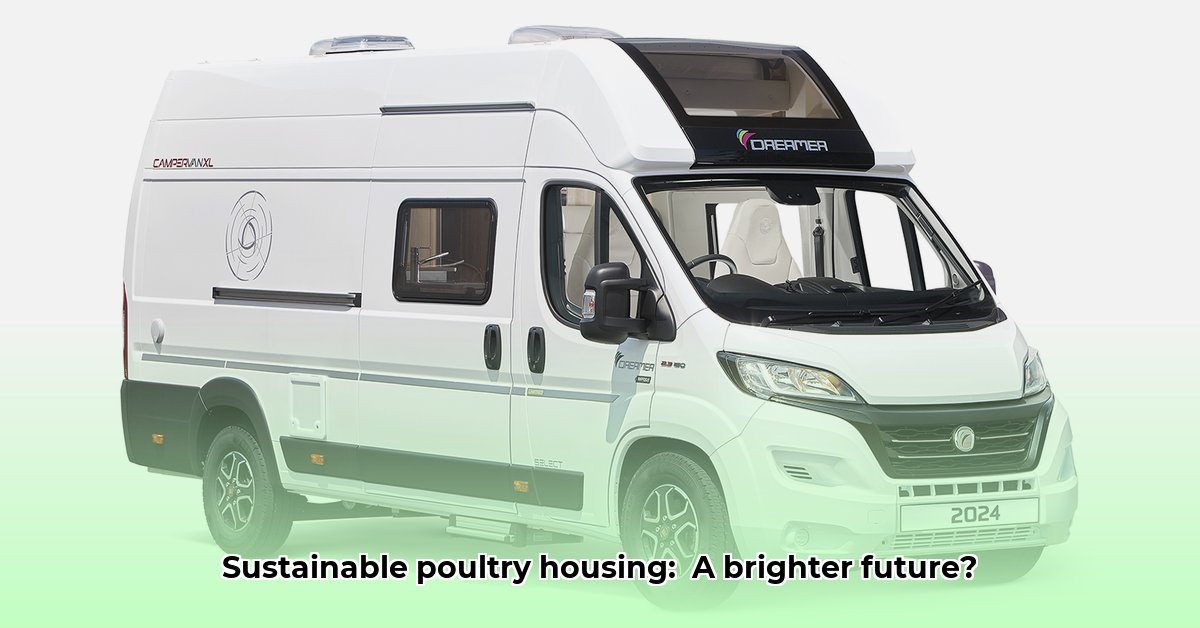
A Case Study of Sustainability in Poultry Farming
This case study examines Van Gent's contribution to sustainable poultry farming, focusing on its product design, manufacturing processes, and overall environmental impact. We analyse the available data, highlighting limitations and offering recommendations for improvement. The study considers various stakeholder perspectives and explores potential risks and regulatory implications.
Background: A Legacy of Innovation in Poultry Housing
Established in 1971, Van Gent, a division of the Vencomatic Group 1, has built a strong reputation for designing durable and animal-welfare-focused poultry housing systems. Their core product lines include laying nests and slats, meticulously crafted to allow for natural chicken behaviour. While the company's commitment to animal welfare is evident, a comprehensive assessment of its sustainability performance requires a more in-depth analysis.
Analysis of Sustainability: Navigating Data Gaps
While Van Gent prioritises animal welfare and durable product design – factors contributing to sustainability – a significant gap exists in readily available quantitative data on their environmental impact. The absence of detailed information on metrics like carbon footprint, waste generation, and water usage hinders a complete assessment. Although the use of wood (a renewable resource) in their slats and the modular design (allowing for easier part replacement and potentially reduced waste) are positive attributes, we are lacking verifiable data to quantify the extent of their environmental benefits. Furthermore, the energy consumption of automated systems requires further investigation. To illustrate, the company's reliance on sustainably sourced wood needs to be backed by verifiable certifications to validate its claims.
Stakeholder Analysis and Recommendations: A Collaborative Approach
Achieving genuine sustainability requires a collaborative effort from various stakeholders. This case study proposes the following actionable recommendations:
Van Gent & Vencomatic Group: Commission a comprehensive Life Cycle Assessment (LCA) to quantify the environmental impact across the product's lifecycle—from raw material sourcing to disposal. Publish transparent sustainability reports including Key Performance Indicators (KPIs) such as carbon emissions, waste generation, and water usage. Explore the use of more sustainable materials and manufacturing processes. A target of reducing carbon emissions by 20% within the next five years should be set, with regular progress reporting.
Poultry Farmers: Conduct thorough comparative analyses of different poultry housing systems, focusing on KPIs provided by manufacturers. Integrate sustainable farming practices beyond housing, such as feed management and waste reduction, to amplify the benefits of sustainable housing.
Consumers: Demand transparency from poultry producers concerning sustainability practices. Support companies demonstrating a genuine commitment to environmental responsibility and animal welfare through purchasing decisions.
Government Regulators & NGOs: Develop and enforce stricter regulatory standards for sustainability reporting within the poultry industry. Provide incentives for companies adopting eco-friendly practices and technologies. Greater transparency in supply chain practices should also be a regulatory priority.
Risk Assessment: Proactive Mitigation Strategies
A proactive approach to risk management is crucial for Van Gent. Based on our analysis, the following risks are identified:
| Risk Factor | Likelihood | Impact | Mitigation Strategy |
|---|---|---|---|
| Lack of sustainability data | High | High | Immediate commissioning of an LCA and transparent reporting of findings. |
| Competition | Medium | Medium | Highlight animal welfare focus and product durability as key differentiators. |
| Fluctuations in material costs | Medium | Medium | Explore alternative sustainable materials and secure supply chain partnerships. |
| Changing consumer preferences | Medium | Medium | Enhanced transparency in sustainability efforts and open communication. |
Regulatory Implications: Adapting to Evolving Standards
The poultry industry operates within a dynamic regulatory landscape, encompassing animal welfare and environmental protection. Van Gent must proactively adapt to these evolving standards. Compliance with relevant regulations, such as those relating to sustainable forestry and waste management, is paramount to maintaining their reputation and market viability. Proactive engagement with regulatory bodies is vital to staying informed about upcoming changes.
Conclusion: A Path Towards Greater Sustainability
Van Gent’s established strength lies in its commitment to animal welfare and the construction of durable poultry housing. However, to achieve true sustainability, a data-driven approach is essential. The lack of quantitative data on sustainability metrics currently limits a conclusive assessment. The recommendations outlined above provide a roadmap for Van Gent to improve its transparency and environmental performance—actions that are not only beneficial for the planet but will also enhance their long-term competitiveness in a market increasingly focused on sustainability. Transparency and quantifiable data are vital to build consumer trust and ultimately to ensure the successful future of Van Gent, and indeed the whole poultry farming industry.